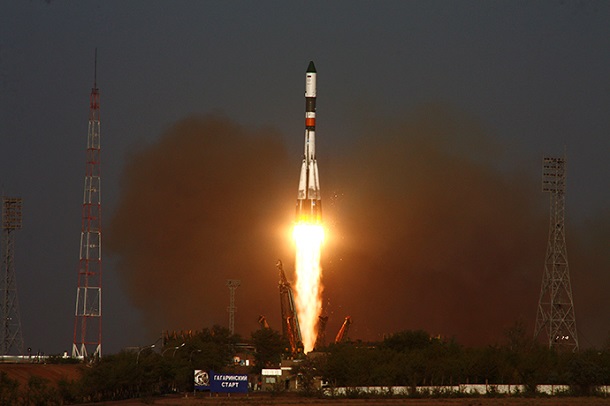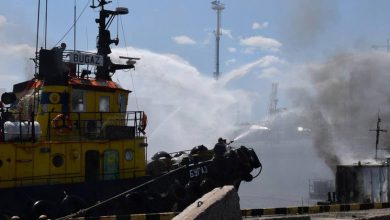A Russian booster rocket carrying three satellites has crashed at a Kazakhstan’s Baikonur cosmodrome.
A Russian Proton-M rocket carrying three GLONASS navigation satellites crashed soon after takeoff from Kazakhstan’s Baikonur cosmodrome.
Spectacular footage showed the Proton-M rocket veering off course seconds after its launch in the early hours, before erupting into a ball of flames and unleashing clouds of noxious black smoke.
“It seems something is going wrong,” said a television commentator during the live coverage of the launch.
“Something is wrong. It seems it will be a catastrophe,” said the presenter, his voice trembling, shortly before the rocket exploded.
The rocket was supposed to take three Russian Glonass-M navigation satellites into space.
The Russian space agency Roskosmos said there appeared to be no casualties, adding it could not immediately say whether areas near the crash site were being evacuated.
“A rocket carrier fell to the ground and exploded on the territory of the (Baikonur) cosmodrome,” the space agency said in a statement.
Kazakh officials said the fumes from the rocket fuel consisting of 600 tons of highly poisonous kerosene, heptyl and amyl might present a danger to the local population.
Residents of several nearby towns were told to stay indoors and keep their windows shut.
The Russian space programme has been a source of national pride in the country since it sent the first man into space in 1961 after launching the first Sputnik satellite four years earlier.
But, more recently, Russia has suffered several major setbacks, notably losing expensive satellites and an unmanned supply ship to the International Space Station.
Russia suffered a disaster at the same cosmodrome in 1960 when a prototype rocket exploded on the launch pad and released the highly poisonous rocket fuel known as the “devil’s venom”.
The Russian space agency referred to that tragedy as a veritable “inferno” – 126 people were burned alive or vaporised altogether, while others died of noxious fumes or succumbed to burns later.
The Soviet Union, which was then locked in an arms race with the US, imposed total secrecy over the disaster and the files were only declassified in the 1990s.



